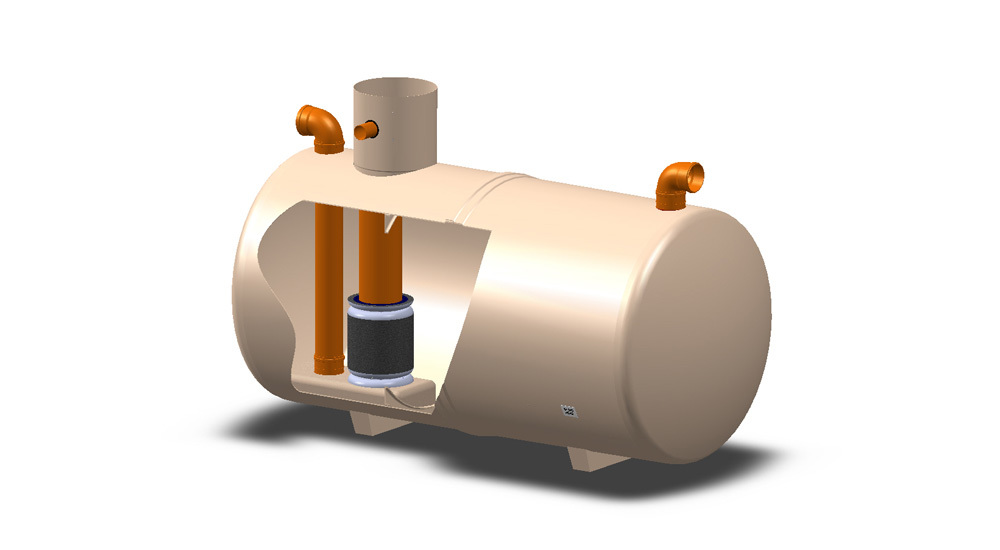20.12.2019 Istanbul
Oil Fuel Separator Separators
Oil/Fuel Separator; It is the pre-treatment equipment used to separate all kinds of oil and oil derivatives mixed with water from water. Most often it is one of the first stages of large wastewater treatment plants. As it is known, Water Pollution Control Regulation (O.G Date: 31.12.2004, O.G Number: 25687); Rainwater, cooling water, etc. It states that wastewater should not be diluted with less polluted waters. So what should we do if we cannot discharge oil or fuels mixed with rainwater or cooling water to the wastewater treatment plant? Oil/fuel separators in various sizes and easy to position are the answer to such problems.
Even a drop of oil can pollute hundreds of cubic meters of water. Fuels can be found in many phases (liquid, gas) according to the differences in their chemical components and can be easily transported. Oil derivatives can even cause the risk of explosion in the channels. Thanks to the oil/fuel separators, the fuels can be collected separately and controlled without being discharged into the receiving environment or channels.
According to Turkish Legislation;

In Article 54/7 of the Regulation on Fire Protection of Buildings; In the liquid fuel boiler room, liquid fuel streams are passed through the fuel separator and then drained into the sewage pit and removed from the boiler room in a controlled manner.
In Article 118/8 of the Regulation on Fire Protection of Buildings; Spilled flammable liquid is prevented from leaking into wastewater pits, ducts, pipes and pipe and plumbing ducts.
In Article 120/4b of the Regulation on Fire Protection of Buildings; In places where filling and discharge are made, the mixing of the flowing liquid with surface and underground water resources and sewage is prevented.
Fuel Stations – Safety Requirements (TS12820)-In 4.10.3; Oil-fuel separation and sludge sedimentation systems should be used in the station, where surface water and washing/service wastewater are separated.
In Europe, the EN-858 (Separation systems for light liquids (such as oil and petroleum) standard) details the installation and use of oil/fuel separators. In Turkey, TSE has published the TS-EN 858 standard.
According to the EPA;
EPA’s SPCC (Spill Prevention, Control, and Countermeasure) Guidance states that the oil separation process in wastewater treatment plants is not included in this guide.
SPCC has divided the oil/fuel separators into 4 according to the needs of the facility where they will be used.
- Use in Wastewater Treatment Plants (CRF14)
- Use in Secondary Enclosures
- Use in Fuel Production Facilities
- Use in Oil Recovery/Recycling Plants
SPCC recommends using the oil/fuel separator for the recovery and reuse of fuels.
In addition, SPCC states that oil/fuel separators are a reliable method in the following projects.
- At an active groundwater reclamation site
- In the retention of oils from oil and liquid wastes
- Landfill leachate collection systems
